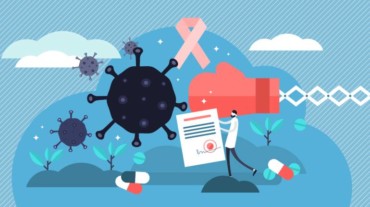
The word cancer evokes fear, anxiety and uncertainty in individuals, and no one wants to encounter it in their life—either for themselves or their loved ones.
Some of the cancers that are increasingly being seen in women are breast, cervical, ovarian and endometrial cancer. Knowing about these cancers not only helps in early detection but also helps you make healthy lifestyle choices that can go a long way in reducing your risk.
Breast cancer
One of the areas that women are most concerned about is their breast health and the risk they face of getting breast cancer. Breast cancer is the most common cancer among Indian women. In urban areas, one in 22 women are likely to develop breast cancer during their lifetime. Of these 50% may not survive.
While there is no confirmed way to prevent breast cancer, women can do several things that can lower their risk. There are factors such as heredity, age and the fact that you are female, which cannot be changed.
But research shows that lifestyle changes reduce the risk of breast cancer, even in women who are at high risk. Personal behaviour, such as healthy diet, weight management and exercise and other lifestyle-related factors such as decision or age to have children, breastfeeding can impact the risk profile of a woman.

To lower their risk, women should:
Cervical cancer
Certain strains of human papillomavirus (HPV) cause cervical cancer. The virus spreads through intimate unprotected sexual contact. However, factors such as smoking, obesity, and exposure to certain hormones also increase a woman’s risk of contracting cervical cancer.
Also, watch:
To lower your risk, HPV vaccination is recommended for girls and boys around 11-12 years of age. In fact, it should be administered to all persons upto 26 years who have not been vaccinated earlier.
Ovarian Cancer
Women who become overweight in their early adulthood, have had an early onset of menses, have never been pregnant, have unexplained infertility, have not taken birth control pills, or who have entered menopause later may have an increased risk of ovarian/fallopian tube cancer.
Select Topics of your interest and let us customize your feed.
PERSONALISE NOWResearch shows that women who take oral contraceptives for 3 or more years are significantly (30% to 50%) less likely to develop ovarian/fallopian tube cancer. The decrease in risk may last for 30 years after a woman stops taking the pills. Also, the longer a woman breastfeeds, lower is her risk. The more full-term pregnancies a woman has had (borne children), lower is her risk.
Endometrial cancer
Endometrial cancer is a cancer of the endometrium (the inner lining of the uterus). An early onset of menstrual periods, late menopause, a history of infertility, or not having children can increase the risk, too.
All in all, this is what you should do to reduce your risk
To summarise, while there is no clear indication that cancer can be prevented—the following steps can reduce your risk of contracting cancer:
Last but not the least, know your and your family’s medical history to know your risk profile. And undertake regular screenings and health checks as per your doctor’s recommendation.